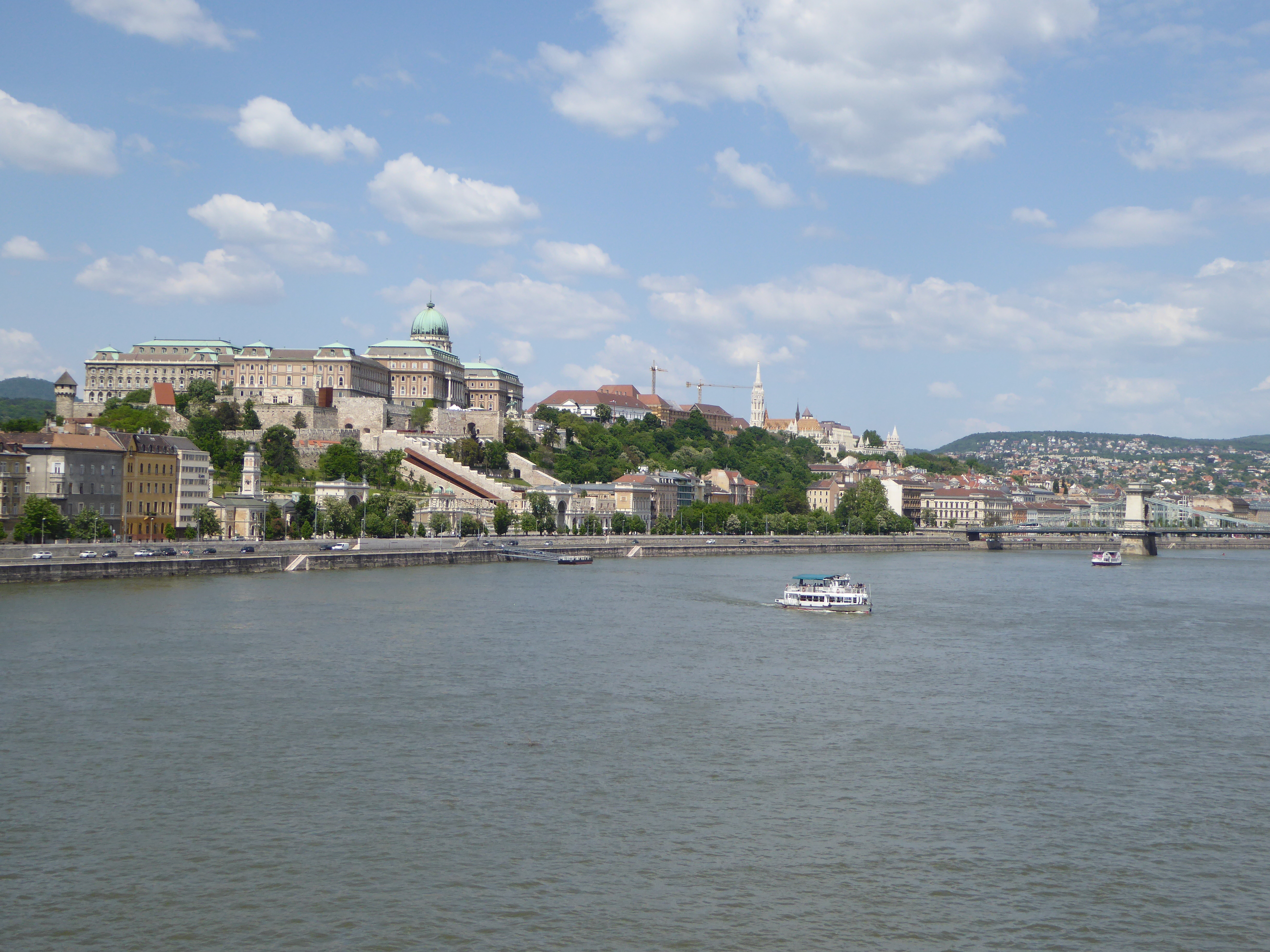
The Danube, Budapest
“When someone went up the Danube to Vienna, it was said that he went to Europe”, Elias Canetti (the name is derived from the Spanish city of “Canete”, from where the family seemed to have been expulsed) wrote in the first part of his autobiography “The Rescued Tongue” in 1977. Canetti was born in Rustschuk / Ruse, Bulgaria, at the Danube and his native town became the symbolic start of the journey of the later winner of the Noble prize for literature. His Jewish forefathers were expelled from Spain after the Christian Reconquista and settled in Rustschuk as merchants. This “second diaspora” made Canetti a “Sephardic Jew”, who chose German as the “mother tongue” of his literature. Canetti’s path of life was a European one and it started in Vienna after he had crossed an invisible frontier when going up the Danube.
The history of the Danube has always been a history of West and east. As no other European river it is an international river that unites peoples, languages and cultures. Sephardic Jews from the Osman Empire followed the Turkish armies in their expansion in Europe since the 16th century and they settled in the newly conquered territories. Jewish communities flourished not only in the capital cities on the Balkans peninsula but also in frontier cities and Rustschuk at the lower Danube on the border between Romania and Bulgaria was one of them. Canetti paid tribute to the ethnic variety and cosmopolitan character of his home town: “…. There lived people of various ethnic backgrounds. On one day one could hear seven or eight languages. Except Bulgarians, who often came from the countryside, there were many Turks, who lived in their own quarter and next to this there was the quarter of the “Spanioli”, the Sephardic Jews, but there were also Greeks, Albanians, Armenians and Gipsies. From the other banks of the Danube came Romanians; my wet-nurse, who I cannot remember, was a Romanian. ……. Rustschuk was an old Danube harbour and as such was of some significance. As a harbour it attracted people from everywhere and the Danube was in everyone’s mouth at any time.”
Even after the withdrawal of the Osman Empire from the region, the Osman culture dominated the people’s minds and their way of life in this region of the Balkans and “Europe” was another world for them: “….The rest of the world was called Europe there and if someone went up the Danube to Vienna, it was said that he went to Europe. Europe began where the Turkish Empire once ended”. This quote characterises the relationship of many Balkan cities to Vienna and explains the presence of Jewish merchants from the Balkans there. In fact that was the role that Vienna as the capital of the Habsburg Empire plaid until 1914, a hub between Europe and Asia Minor. Most Sephardic Jews from the Balkans remained Osman / Turkish citizens even after 1878 and the foundation of the Bulgarian state. But despite their loyalty to the Turkish state they were culturally bound to Vienna. Canetti: “There is a lot to be said about the Austrian influence in these early years in Rustschuk. Not only did both of my parents go to school in Vienna, they also spoke German with each other: My father read “Neue Freie Presse” every day….. I knew that the paper came from Vienna, and that was far away. It took four days upstream on the Danube. We often talked about relatives, who went to Vienna to consult famous doctors.”
For the Sephardic Jews from the Balkans Vienna was the gateway to Europe, the hub between Orient and Occident. The sent their sons, and rarely their daughters, to study in Vienna, they established branches and trading centres there, they received all the German-language and also the Ladino-language papers and magazines from Vienna and in difficult cases they trusted in the “Viennese School of Medicine”. In the Osman Empire the Jews had to pay special taxes as all non-Muslims, but they could more or less live their lives and practise their religion without interference from the state. Progroms, which were widespread in Eastern Europe, were practically unknown in the Osman Empire. After the occupation and annexation of Bosnia Herzegovina by the Habsburg Empire in 1878, the Jews enjoyed the unlimited status of equality that was guaranteed in the constitution since 1867 in the Habsburg Empire. In order to entice the multi-ethnic and multi-religious population of Bosnia-Herzegovina and convince them of the benefits of Habsburg rule the administration and the educational system were reformed and the infrastructure was built up to boost economic growth in the region. The Bosnian Jews like most other ethnic groups benefitted from the economic reforms, solely the Serbian population, which was mostly working in agriculture, did not profit from the new system due to a failed agrarian reform.
Literature:
Canetti, Elias, Die gerettete Zunge. Geschichte einer Jugend. Frankfurt/Main 1979
Die Türken in Wien. Geschichte einer jüdischen Gemeinde, Jüdisches Museum Wien 2010
Judt, Tony, A Grand Illusion? An Essay on Europe, 1996
